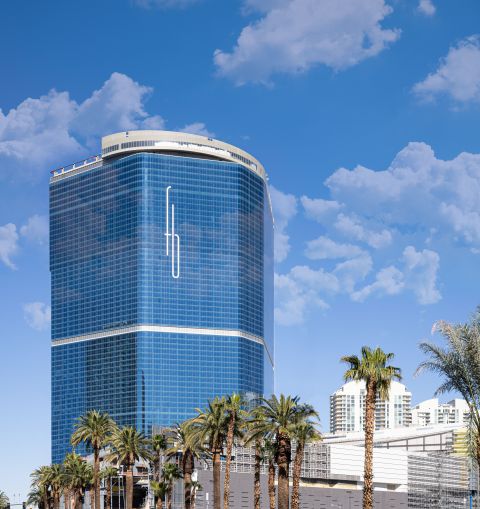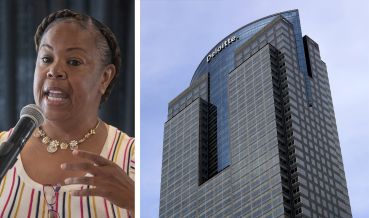Hotel Financing Still in a Deep Freeze Amid Pandemic Fallout
But lenders and analysts expect a thaw in the second half of 2023
By Mike Seemuth February 8, 2023 10:20 am
reprints
Many U.S. hotels are recovering from the COVID-19 pandemic that first hit them in 2020 and slammed the brakes on hotel investment. But the pace of hotel acquisitions remains slow, despite the industry’s improved health, because rising interest rates have made hotel acquisitions so much harder to finance.
“The hospitality industry is recovering in virtually every aspect except transactional volume,” said Bryan Younge, an executive vice president at Newmark (NMRK) Valuation & Advisory who leads the firm’s hospitality, gaming and leisure practice.
“A lot of the big banks are on hold with hospitality. Some won’t even look at a deal for the next 90 days,” said Alessandro Colantonio, the chief investment officer of Gencom, a Miami-based firm that develops, manages and invests in hotels.
“Right now, we’re in a bit of a freeze with respect to hotel transactions,” said Jeffrey Davis, head of U.S. investment sales and senior managing director of brokerage firm JLL (JLL). Davis expects a thaw in the second half of 2023 but no overall growth in the volume of domestic hotel acquisitions this year compared with 2022.
“I don’t believe we’re going to get the same transaction volume in 2023 that we had last year,” Davis said. “I just don’t think it’s possible. We’re not going to make up a whole year in the second half.” He said a wide gap between asking prices and bids for hotels will persist until the Federal Reserve stops raising interest rates.
“We’ve got to get a capitulation between buyers and sellers to establish where that pricing is,” said the JLL executive, who expects few fire sales. “I don’t think we’re going to see the distress that everybody thinks we’re going to see.”
Global investment in hotels totaled $71.9 billion in 2022, compared to $73.5 billion in 2021 and $32 billion in 2020, according to a hotel industry research report by JLL. Hotel transactions in the Americas accounted for more than half of global investment in 2022 and 2021. JLL also reported that the number of hotel sales increased to more than 1,000 in each of the last two years, from fewer than 600 in 2020, and that many of the properties that sold were limited-service hotels.
Brett Mufson, president of Florida-based Fontainebleau Development in partnership with billionaire developer Jeffrey Soffer, also foresees a first-half slump in U.S. hotel investment and a second-half surge in 2023.
“My guess is it will be a flat year, overall,” said Mufson, who also serves as president and CEO of Fontainebleau Las Vegas, a 67-story hotel with about 3,700 rooms now under construction and expected to be finished by the fourth quarter of 2023. “The first half of this year is going to be crickets, for the most part. But you’ve got a lot of money on the sidelines, a lot of dry powder, and I think you’ll see a pretty robust second half of the year.”
Distress could drive an uptick in sales of hotels with owners burdened by debt or deferred renovation. “From an acquisition standpoint, there should be some distress around the edges,” Mufson said. “I don’t think it will be systemic. There’s not that much leverage in the system. But there’s a lot of floating-rate debt.”
London-based Cain International, for example, acquired the Philipe Starck-designed Delano hotel in Miami Beach by purchasing debt on the oceanfront property. “We acquired it in distress. We acquired it through the debt and looked at repositioning and bringing that asset back,” said Eric Poretsky, the head of U.S. investments for London-based Cain International.
“The interest rate environment is going to create more distressed opportunities for rescue-capital repositioning,” Poretsky said. “At the same time, you have a lot of well-capitalized hotel owners. It’s a very different environment than it was in the Global Financial Crisis back in 2008. We will not have as many forced sales.”
The Federal Reserve on Feb. 1 raised the interest rate on overnight loans between banks for the eighth time since March 2022, to a target range of 4.5 percent to 4.75 percent.
As a result, “there’s a few hotels that are going to be underwater,” said Peter Strebel, chairman of Dallas-based Omni Hotels and Resorts. “We’re already seeing this in Minneapolis, where the Hilton is underwater and is going to be [offered for sale] in an auction.”
Omni Hotels & Resorts has full ownership of 42 of the 55 hotels under its flag, but the company rarely parts with its properties. “A lot of times, we’ll meet with a real estate investment trust, and they would love to buy one or two of our properties. However, we’re a long-term holder. We’re a family business,” said Strebel. “During COVID, we sold five hotels in markets that could not support the Omni brand. We closed [the sales] in ’21. It didn’t make sense for us to invest or renovate them. They were in limited-service markets where the room rates are low.”
The inflation-fighting Federal Reserve has raised the cost of borrowing to buy hotels so much that the volume of U.S. hotel sales is likely to decline this year, Strebel said. “All the brokers will tell you they either have a few trophy assets for sale that trade at very high prices, or some assets that are borderline and need to go,” he said. “People don’t want to sell their assets at a fire sale. … But to make these assets work, we’ve got to have better interest rates.”
In general, hotel owners who want to sell are reluctant to lower asking prices, and investors want lower prices because borrowing costs are higher, said real estate attorney Suzanne Amaducci-Adams, the Miami-based head of the hospitality group at law firm Bilzin Sumberg.
“The buyers and sellers aren’t on the same page. It has to do with cap rates and a fundamental need to reprice assets,” she said. “I think in the second half of the year, you’ll see more transactions than in the first half of the year. The first half is going to be fairly quiet, unless it’s a legacy deal from last year or a true distress situation that needs to move quickly.”
Deferred renovation may be a widespread source of distress among hotel owners and operators. After the pandemic hit the industry in 2020, some hotel owners took funds from reserves for new furniture, fixtures and equipment [known as FF&E] to make loan payments and cover other expenses. But the practice puts downward pressure on a hotel’s value. “The problem is, they raided their FF&E reserves,” said Amaducci-Adams. “It was really the only place where they had money, because so many of them were closed.”
Leisure travelers have driven the post-pandemic recovery of the hotel industry while other segments of the lodging market have lagged, including business travelers, international travelers, and groups that travel for meetings and conventions. Hoteliers expect their recovery to extend as looser COVID rules in China and Japan encourage international travel to U.S. destinations.
By lowering their asking prices, hotel sellers can increase the capitalization rates, the annual profit a hotel produces as a percentage of the price. “Capitalization rates that investors use historically have been low. But now that we’re in a higher interest-rate environment, we think cap rates just mathematically must rise somewhat,” said Rich Lillis, the national director of Colliers Hotels USA, a consultant to clients on hotel and resort sales and financing.
“On the equity side, there’s tremendous liquidity. There’s all kinds of money that wants to invest in quality hotels,” Lillis said, citing private equity firms, family offices and hedge funds. In the debt market, “interest rates seem to be peaking, maybe, and lenders seem to be interested in lending on quality hotel acquisitions.”
Newfound efficiency is another hopeful trend among hotels, said Amaducci-Adams. “What the hotel industry learned during COVID was, you can do more with less,” she said. “They had to cut employees, they had to cut services. Does the traveler still need daily housekeeping? There are some travelers who don’t want anyone in their room!”
There are also some travelers who don’t want to go straight home, either. Remote working has enabled them to extend weekend leisure trips to include one or more workdays, a Monday or a Friday or both, for example.
“The advent of the new ‘bleisure’ [travel] segment — the combination of business and leisure activities in the same trip — was made possible by flexible and remote work accommodations,” Newmark’s Younge said in an email exchange. He also said the “bleisure” segment played a significant role in the post-pandemic recovery of the U.S. hotel industry, especially in the southern half of the United States.
But Younge also expects that the boom in leisure travel will recede to more sustainable pace due to a steep decline in the percentage of income that Americans save: “The U.S. personal savings rate spiked to over 30 percent in 2021 for the first time in history, then rapidly depleted to an unprecedented 2.4 percent at the beginning of 2023. This signals that leisure travel will subside.”
Nevertheless, he said, investor interest in U.S. hotels will persist as value-add opportunities emerge, “namely for full-service and convention-style hotels in gateway markets.”
High prices for prime properties in top locations apparently are not blocking mega-sales. Last year, 37 hotels and resorts around the world sold for more than $1 million per key, according to the hotel industry report by JLL.
“Three or four years ago, a trade at $1 million per key was incredible,” said Gencom’s Colantonio. “We’ve blown well through that threshold. It’s not a stigma anymore to be at $1 million a key.”


